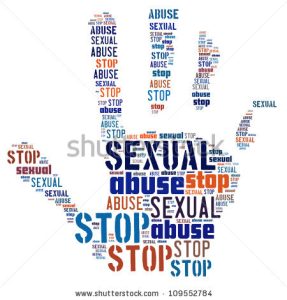Definitions and Terms of Sexual Abuse
April 15, 2014
Summary: The definitions associated with sexual abuse are second nature to us, as we have practiced in this area for nearly 20 years. However, we realize that our readers may not have the same understanding as we do. So, we compiled a list of common terms and definitions to help.
The recurring theme in our Child Molestation Victim blogs is sexual abuse. Sexual abuse has no discriminator; the victims are boys and girls, child and adult, poor and rich. Abuses can happen in many different places. Some commonly-used definitions differentiate age, location, and type of abuse consummated. Many of these are used interchangeably when they shouldn’t, and some simply do not know what those words really mean. We aren’t here to give you a regurgitation of Webster’s Dictionary, but rather put the definition in Layman’s terms.
IF YOU ARE A VICTIM OF SEXUAL ABUSE CONTACT ESTEY & BOMBERGER TODAY
TERMS AND DEFINITIONS
Sexual Abuse (Molestation): Forcing unwanted sexual behaviors onto another person. This is the generic term used, and because of this the definition is intentionally broad. This word is used interchangeably with molestation.
Rape: Sex that is carried out on a person who does not consent, cannot communicate consent, or is forced into consent. Rape is often used interchangeably with sexual assault; however, we think rape is a very clear word with a very clear definition and do not interchange the two.
Child Sexual Abuse (Child Molestation): Any form of sexual abuse which an adult or older adolescent uses a child for sexual gratification, regardless of the outcome. Some examples include asking or persuading a child to engage in sexual activities, indecent exposure or touching, grooming the child for future sexual abuse, or exploitation. In California, the age of a ‘child’ is any child under the age of 14.
- Unlawful Sexual Intercourse (Statutory Rape): Sex carried out with a person under the age of 18 who is not the spouse of the person. Generally, the minor has reached puberty, but not the legal age of consent. The severity of the penalties generally depends on the age gap between the two people.
- Indecent Exposure (Lewd and Lascivious Behavior): The deliberate immoral exposure of the abuser’s body to another person. Specifically, this is the abuser showing their genitals in public with the intent to arouse the victim.
- Child Grooming: When the abuser ‘grooms’ the victim by establishing an emotional bond with the future intent of consummating child sexual abuses.
- Child Exploitation: Depicting, encouraging, or employing a child to perform obscene acts, and/or selling or distributing such images. This includes child pornography and child prostitution.
Sexual Assault: Any unwanted sexual touching forced onto another person, or the attempt to do so. It includes rape, but encompasses all forms, including aggravated sexual assaults, groping, forcible kissing, and sexual torture.
- Aggravated Sexual Assault: Using the same definition of sexual assault, it becomes ‘aggravated’ when it wounds, maims, disfigures, or endangers the life of the victim.
- Groping: Using hands to touch or fondle another person in a sexual manner. Technically, any form of touching can be called groping, but it is most commonly done with hands. Most common areas are the buttocks, breasts, and thighs on a woman – for men, the most common are the buttocks, penis, and testicles.
- Sexual torture: Deliberately inflicting severe psychological or physical pain in a sexual manner.
- Forcible kissing: Use of force or coercion to kiss another person. This one is self-explanatory.
Sodomy: “Immoral” sexual activity carried out on another person. This is most commonly associated with anal sex, but also includes oral copulation. If sodomy has been carried out, the assailant will face multiple charges, with sodomy being one of them.
Incest: Sexual activity between family members and/or close relatives, and can be abusive in nature.
The purpose of providing this list is not to have an exhaustive legal definition of every sexual abuse term; rather, these are simply the most common terms associated with our practice area and our blog.
Sources:
U.S. Department of Health & Human Services: Definitions, Scope, and Effects of Child Sexual Abuse


